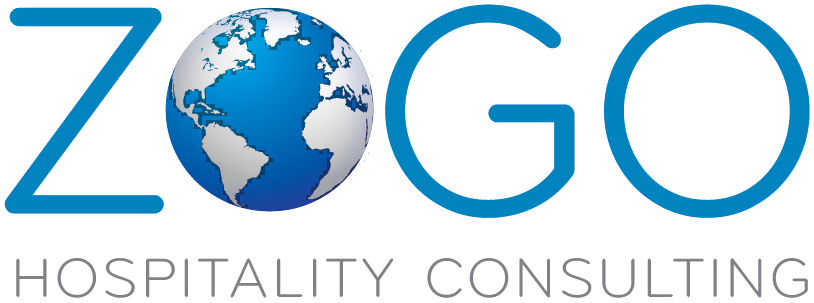It is time to throw away the traditional result-only approach and transition to leading a progress-based successful Hotel operation. With the rise of the millennial mindset, increased remote working, and an ever-changing environment, conventional motivation no longer drives the industry. What used to be the Hospitality Management endgame must now become our baseline, and from there, the real deal starts. Here is how to keep your company consistently on top of the charts:
1. Change from Shamer to Fact Publisher
The millennial mindset ignites and thrives on peer recognition and reward, which replaces the “you can do better” motivational spank. For instance, shaming someone after a round of mystery assessment results can only end in feelings of offense and injustice. After all, this was just one guest in the scheme of large amounts of great service delivered. And the team’s general attitude will be a feeling of entitlement to performance self-assessments above all else.
The overexerted use of social media has created for some a dependency on social desirability or the fear of missing out (FOMO). And this means they require constant, ongoing feedback based on facts and reactions available to them, but at their command, not the managers’ or their analysis. Successful Leaders embrace the trend by becoming a Talent Coach, merely stating facts in an understandable colourful format and asking the right questions without any judgment or shame.
2. Convert your Leaders
The baseline for any movement requires leaders who have converted to your credo and make it subsequently contagious. In this case, this means leading the business through a progress-based approach where the line-colleague is truly in charge.
Placing associates center-stage will make the line-team fully accountable for driving improvement. It will also give the senior Leader the responsibility of removing any arising barriers. Managers lead by being part of the goalsetting, ensuring alignment on the communication strategy, praising standouts, promoting a culture of accountability, and enforcing the elimination of shame outlined in this article. The Managers will then praise individually and coach for improvement mostly in the “we” form: i.e., Are you sure this is as good as we can do? I believe we are more than ready to surpass this. What’s next after we reach this goal?
3. Set it straight
Goals must be genuinely orbital to your business. Traditional Key Performance Indicators in Hospitality include financial indicators, associate engagement, and service level statistics in different formats. But access to constantly improving technology allows for more in-depth, real-time information beyond the basic metrics; we can now empower every department with a progressive self-check. Have you adapted to this? See here how to set Orbital Goals for your Hotel.
Hotel Objectives include a yearly goal, potentially a quarterly goal, and must include a monthly goal. However, we urge you to take this further by ensuring that every department, including back of house, has its own goals. Moreover, wherever possible, encurage a daily temperature check on those goals. Achieving Goals should not feel like an end-of-term exam but rather start line for our performing day.
A bit like the stock market, each Hotel worker should be entrusted to gauge how they are doing at a glance and feel they have the power to change it. Ensure this self-assessment is enabled by having digital or manual boards at each department with updated goals and current results. Moreover, create an additional space where to showcase the department’s achievements that is visible to all departments. Success is contagious.
4. Have the Team lead the communication and performance evaluation, daily
Various studies outline how millennials see themselves as equal players in the workforce. As such, they do not require a Manager to provide constructive feedback on daily results. Instead, they prefer meaningful conversations with Leaders and social recognition from peers, especially when it comes to good results.
So, let us use that for our advantage. Each department must have clear yearly goals for each of their KPIs (agreed at Executive level), with quarterly and monthly goals to support that (agreed at departmental level). Most importantly, especially for operational departments, display a daily scoring update next to the monthly goal. Progression or regression can be immediately identified. For guest-related performance, also display the names of colleagues who truly stand out (positively) in reviews or actions within a month/week.
An assigned Team member owns the updating of the scoring and daily briefing against the goals. This ownership means the team is responsible for the “interpretation” of a positive or negative result, followed by their encouragement to the team for the days to come.
5. Fight lows with highs
We understand that shame and performance management from low scores generally result in the Team’s dislike of performance evaluation processes. Instead, we balance the lows with other highs.
I.e., When your Mystery Shop comes out with a poor result, a private sit-down should follow with the concerned colleagues to identify training opportunities. But this meeting should focus on the way forward and not on performance management unless necessary. After that, any further team discussion referring to that score should be focused on any other great result from that day or week for different KPIs. (i.e., TripAdvisor, number of 10-scored Guest satisfaction surveys, increase in Upselling Revenue, etc.).
Does this mean that we hide our underperformance? Absolutely not. It means that as Leaders, we demonstrate to the Team that they are owners of their success and that each of us can shine if we wish to. By the team owning all recovery and progress, we merely remove roadblocks and provide cheering and support throughout our newly assigned coach role. We are ensuring that everyone can benefit from the expertise and strengths we have hired within our teams, and becoming a leading hotel operation.
